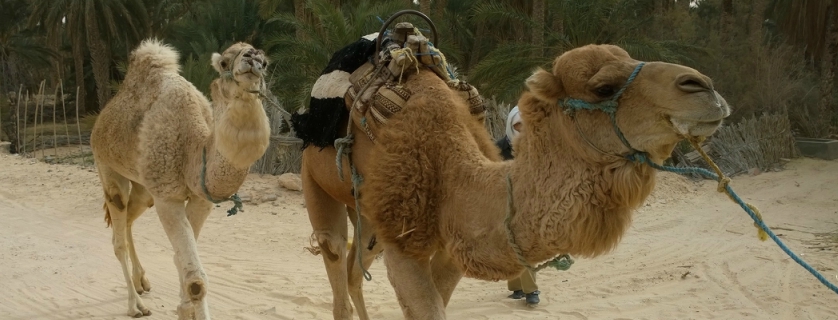
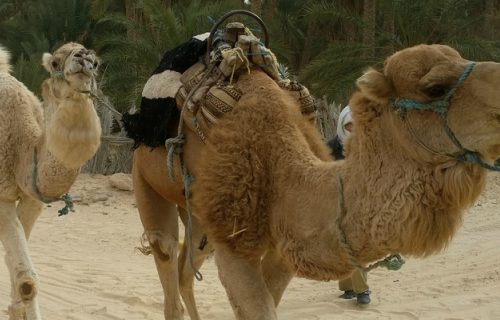
A nasty camel bite for Wissem
Wissem the camel arrived at SPANA’s mobile clinic in Douz, Tunisia, with a deep wound on his nose.
The severe injury had occurred after six-year-old Wissem was bitten by another camel.
Wissem is very important to his owner Mohamed bin Salem, as he carries goods — including hay and forage for other animals — to the weekly souk (market) at Douz, which Mohamed can sell to gain an income.
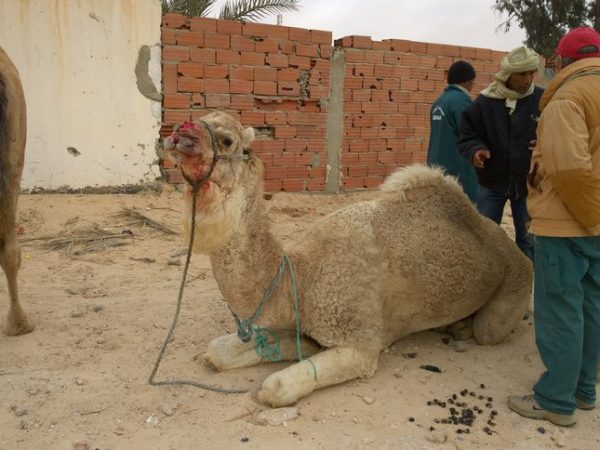
Camels are often used as pack animals in the area, which is on the edge of the Sahara desert, and are an essential form of transport for many local people.
SPANA vet Dr Farah immediately set about treating Wissem. She cleaned his wound with antiseptic solution and applied a cream to the exposed tissue to keep it moist and encourage healing. Due to the nature of the injury, stitching wasn’t suitable and the team decided that allowing the wound to heal naturally would be the best course of action.
Given the complex anatomy of camels’ nostrils, the SPANA vets were concerned about the long term impact of the injury once healed, and the possibility that Wissem may struggle to ‘seal off’ his nostrils to the sand and dust in the future, which could result in respiratory problems.
The team instructed Mohamed to clean the wound daily and asked him to bring Wissem back to the clinic the following week to check that the healing was progressing well. Regular check-ups may be required, but it was a relief that Wissem’s injury was treated so quickly.
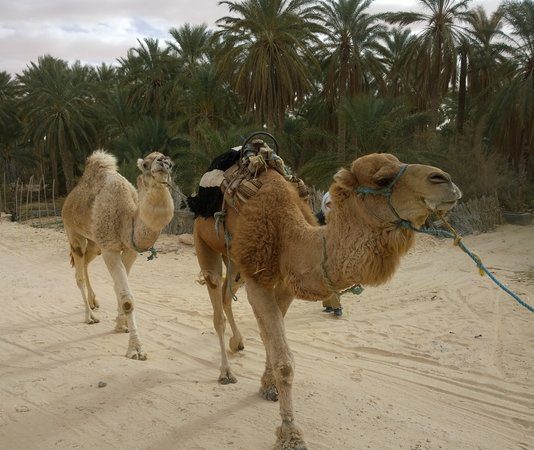
I could see my camel had a bad injury and I would not know what to do without SPANA. I am thankful to them for helping Wissem.
You may also be interested in
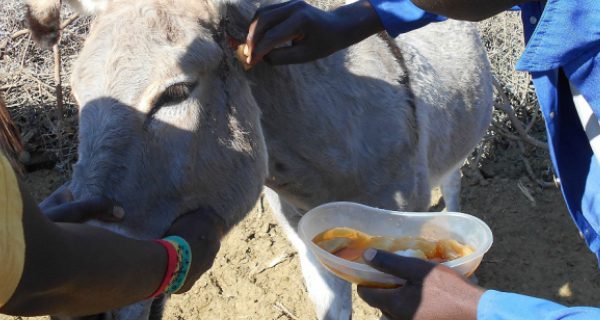
Healing Mary the cart donkey’s wounds
Find out about SPANA's work in Zimbabwe to help cart donkeys like Mary.
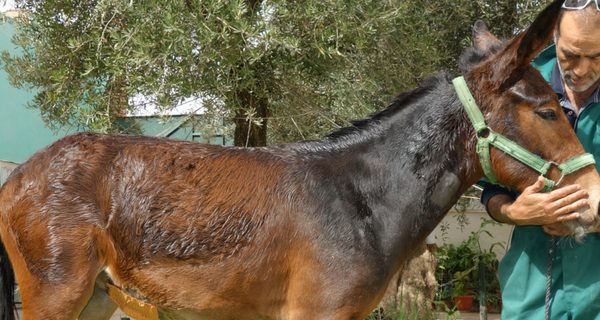
Saving Salha the mule foal
Discover how Salha the mule was helped by the SPANA Chemaia centre in Morocco.
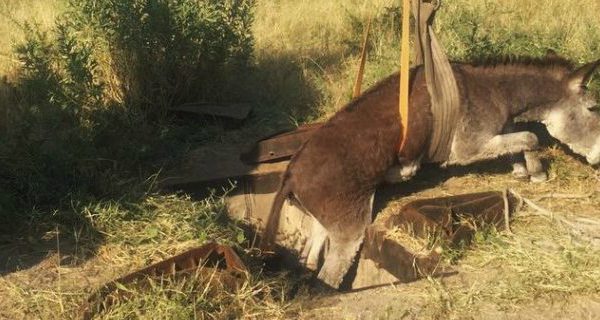
Donkey rescue – helping a donkey out of a hole
Read all about an expert donkey rescue mission in Botswana.

Healing Mary the cart donkey’s wounds
Find out about SPANA's work in Zimbabwe to help cart donkeys like Mary.

Saving Salha the mule foal
Discover how Salha the mule was helped by the SPANA Chemaia centre in Morocco.

Donkey rescue – helping a donkey out of a hole
Read all about an expert donkey rescue mission in Botswana.
